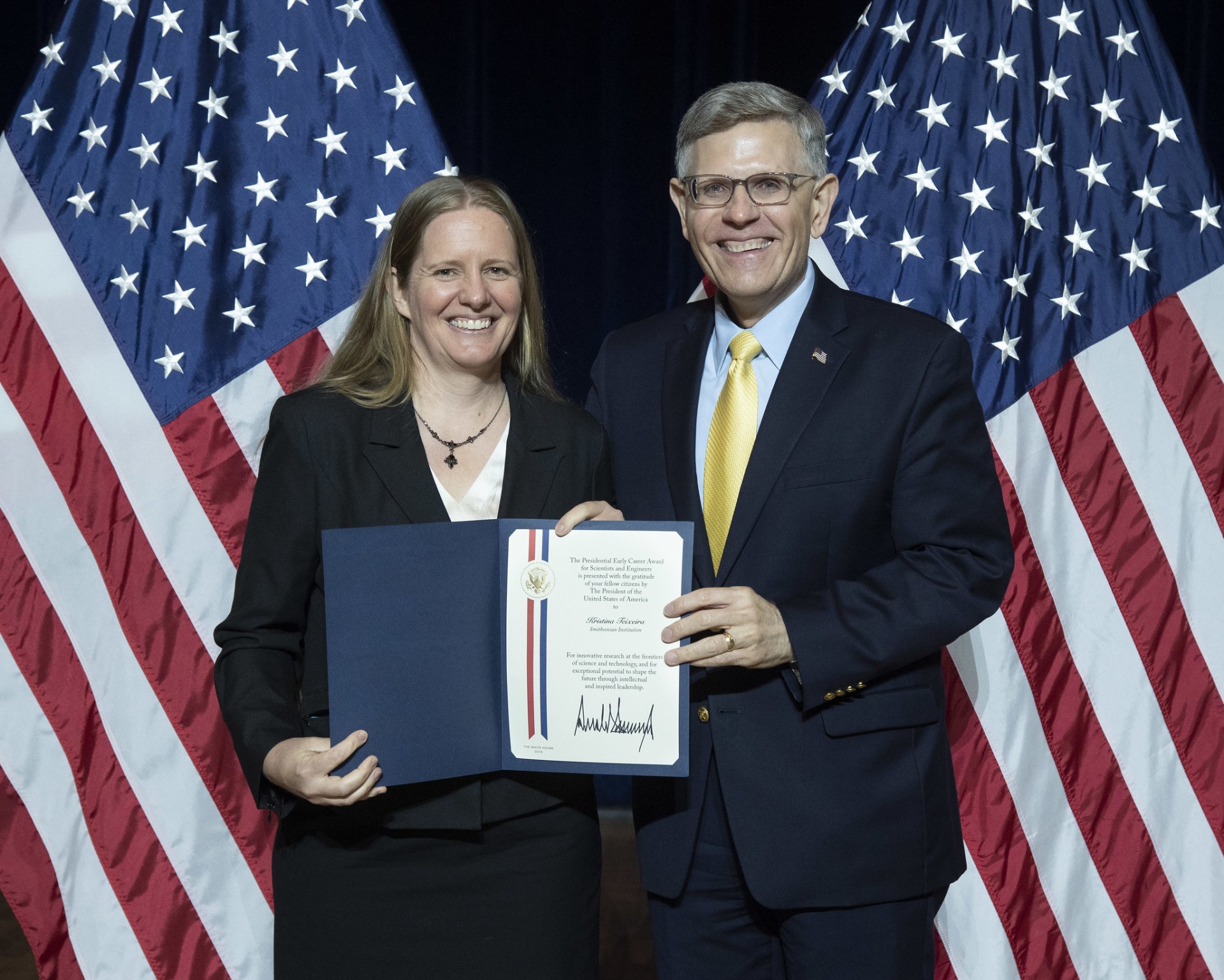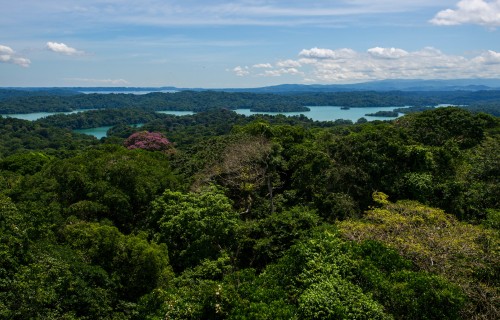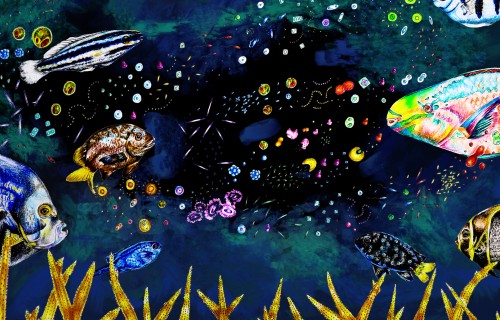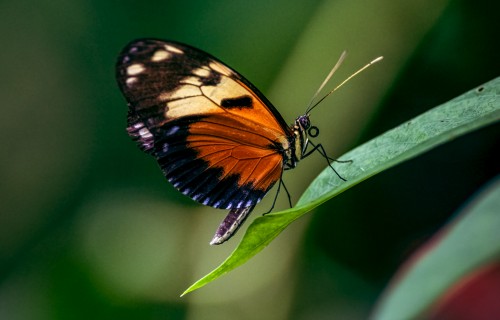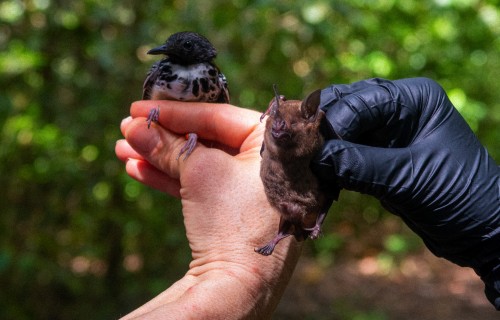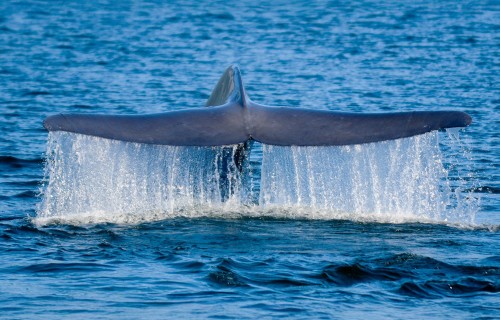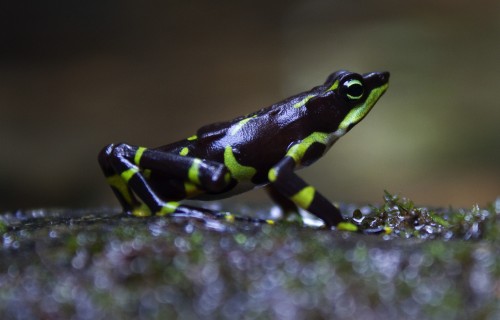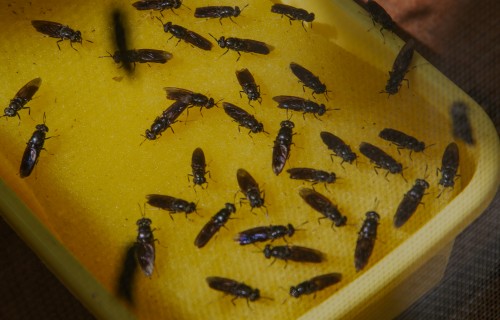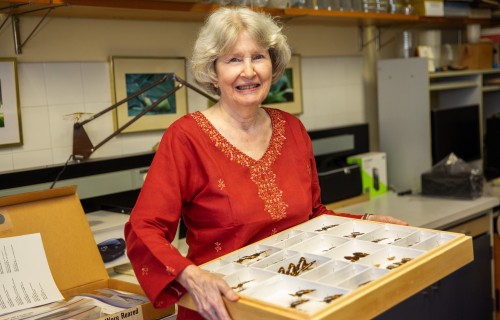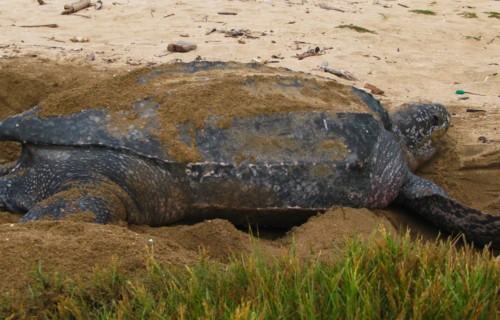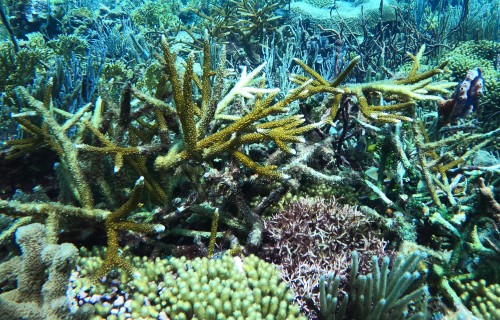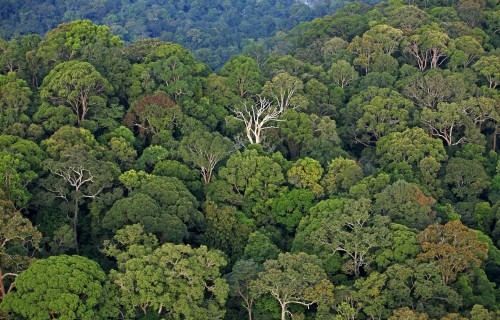Above the tropical forest canopy,
sensors capture the fluxes of gases
between the trees and the atmosphere
President’s
Prize
For the Love of Forests
Panama
Kristina Anderson-Teixeira receives the Presidential Early Career Award for Scientists and Engineers (PECASE) for her work on the effects of climate change on the worlds’ forests.
“This is a huge honor. I’m really excited,” said Kristina Anderson-Teixeira, forest ecologist at the Smithsonian’s Conservation Biology Institute and the Smithsonian Tropical Research Institute, who received the Presidential Early Career Award for Scientists and Engineers (PECASE), the highest honor given to early career scientists by the U.S. government, on July 25. As leader of the Smithsonian’s ForestGEO Ecosystems and Climate Program, Kristina pieces together the big picture of forest response to climate change around the world.
“Climate change is one of the big, important issues facing humanity, and forests play a critical role in climate regulation,” said Kristina. “Yet, forests around the world are threatened by climate change and other human-driven changes. I strive to understand the future of forests and how they can help to mitigate climate change. I’m inspired to be working on an issue where I have the opportunity to make a difference.”
The Presidential Early Career Award goes to outstanding scientists and engineers who show exceptional promise for leadership in science and technology. Kristina grew up outside Reno, Nevada at the edge of a national forest, where she spent much of her free time hiking and enjoying the outdoors. After finishing her undergraduate degree in biology at Wheaton College she received her doctorate from the University of New Mexico. Now she has an impressive list of more than 45 publications to her name. Many of these are the result of juggling tree measurements from the Smithsonian-led Forest Global Earth Observatory (ForestGEO), which monitors over 6 million trees in 27 countries to understand how forests change with time.
Presidential Early Career Award for Scientists and Engineers (PECASE) Ceremony on July 25, 2019. Photo Credit: DOE Photographer, Donica Payne.
“We are the only forest monitoring network applying the same methods in forests all over the world,” Kristina said. “Comparing forests across continents is a job that can’t be done by one person, and I’m grateful for the contributions of my talented colleagues around the world. In the Smithsonian ForestGEO network we all speak the same language. We all work with the same kind of data. Data from my local ForestGEO site at the Smithsonian Conservation Biology Institute in Virginia is set up exactly the same way as data from sites in Panama, Malaysia, and the Democratic Republic of the Congo, so we can make really powerful comparisons across sites.”
As part of the ForestGEO leadership, Kristina seizes the opportunity to inspire an international team. Recently, at ForestGEO’s annual workshop held in Singapore, she helped participants with statistical analysis and data handling. She also cares deeply about her students and invests in their success. “I love to mentor younger scientists and push them to succeed. One of my interns was lead author on an important publication in Nature Plants showing that large trees suffer more from drought.”
Trees cannot talk, so data from research networks like ForestGEO speaks for them. Forests have enormous potential for mitigating climate change. Preventing deforestation is equivalent to reducing carbon dioxide emissions and growing trees pull carbon dioxide out of the atmosphere and store it as wood.
“In the future, are forests going to grow better and take up more carbon dioxide or are they going to collapse?” Kristina asks. “Current global models still have enormous uncertainty as to how forests will respond to climate change. Going out to the end of the century, the uncertainty in how much carbon terrestrial ecosystems will exchange with the atmosphere every year—and forests are the biggest part of this—is almost double the current annual worldwide emissions from fossil fuels. We aim to improve understanding of forests that will inform models and guidelines set up by international organizations like the IPCC.”
The ForestGEO network will be 30 years old in 2020—and the amount of carbon dioxide in the atmosphere has increased by almost 20 percent during that period. Anderson-Teixeira took the lead on a big paper reviewing the most important findings from the network, highly cited by biologists. Permafrost thaw drove forest loss in Canada, while drought has killed trees in Panama, southern India and Borneo. In the U.S., in Virginia, over-abundant deer eat trees before they reach maturity, while nitrogen pollution has changed soil chemistry in Canada and Panama. “We need to understand such changes in forests around the world so that we can predict what will happen to them in the future.”
She believes that if forest carbon data is readily available to more people, more discoveries will be made, and society will have more accurate information about how forest conservation and reforestation can be used to mitigate climate change. To that end, she initiated ForC, a public database featuring >25,000 published carbon measurements from forests at >5,000 forest plots around the world. These data have contributed to updating the Intergovernmental Panel on Climate Change guidelines for counting forest carbon in national greenhouse gas inventories, and are currently being used to understand global-scale patterns in forest carbon and to quantify the potential for climate mitigation through forest conservation and restoration.
Her web page features a beautiful portrait of a tree that she painted based on a photo from a friend in Ecuador. “My three-year-old loves to paint, too. I was just working on another forest painting and I let him put some paint on the paper. The result was beautiful!” In her opinion, the type of passion that she carries for her work is what’s needed to address the major challenge of climate change. “I’m motivated by my love for nature, my love for science. I love my job—working with a diverse group of talented scientists to solve issues so important to society. I hope that this prize draws attention to the forests of the world and the importance of conserving them for future generations.”

